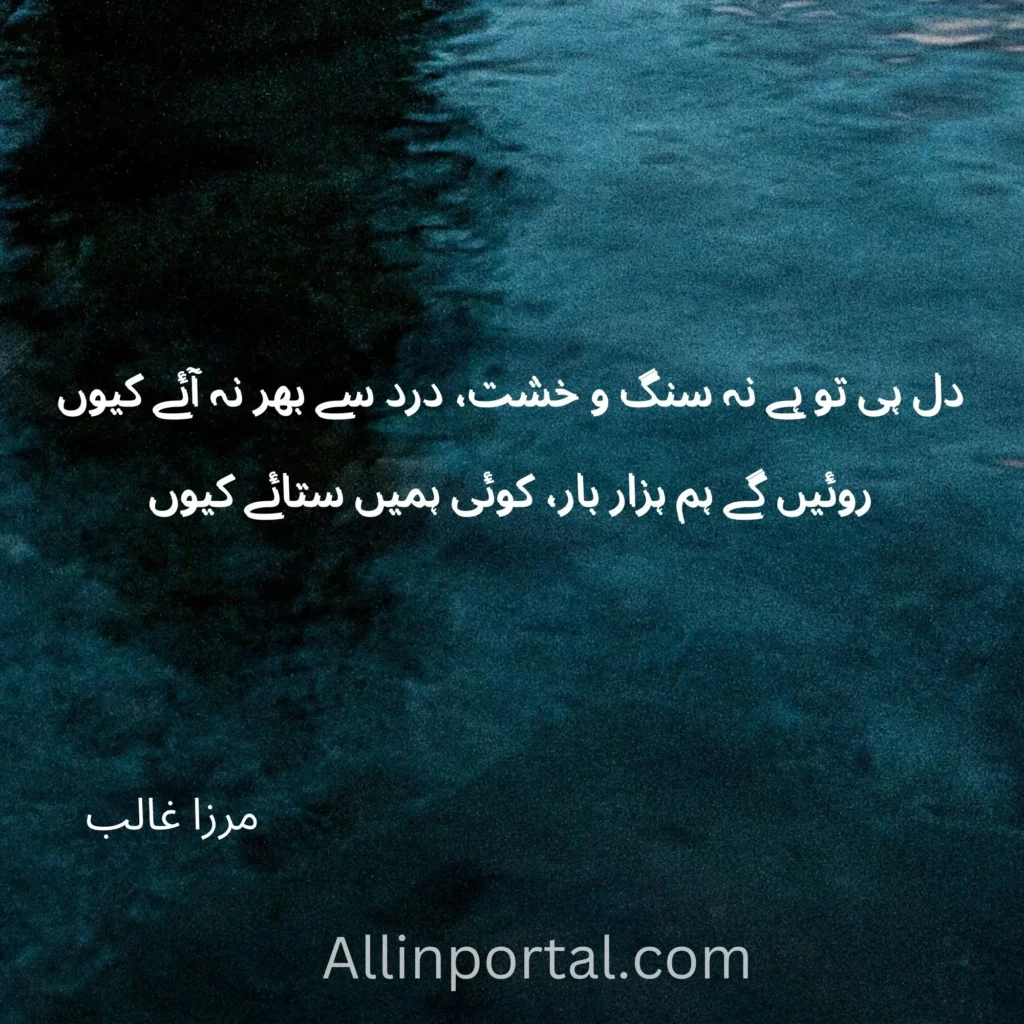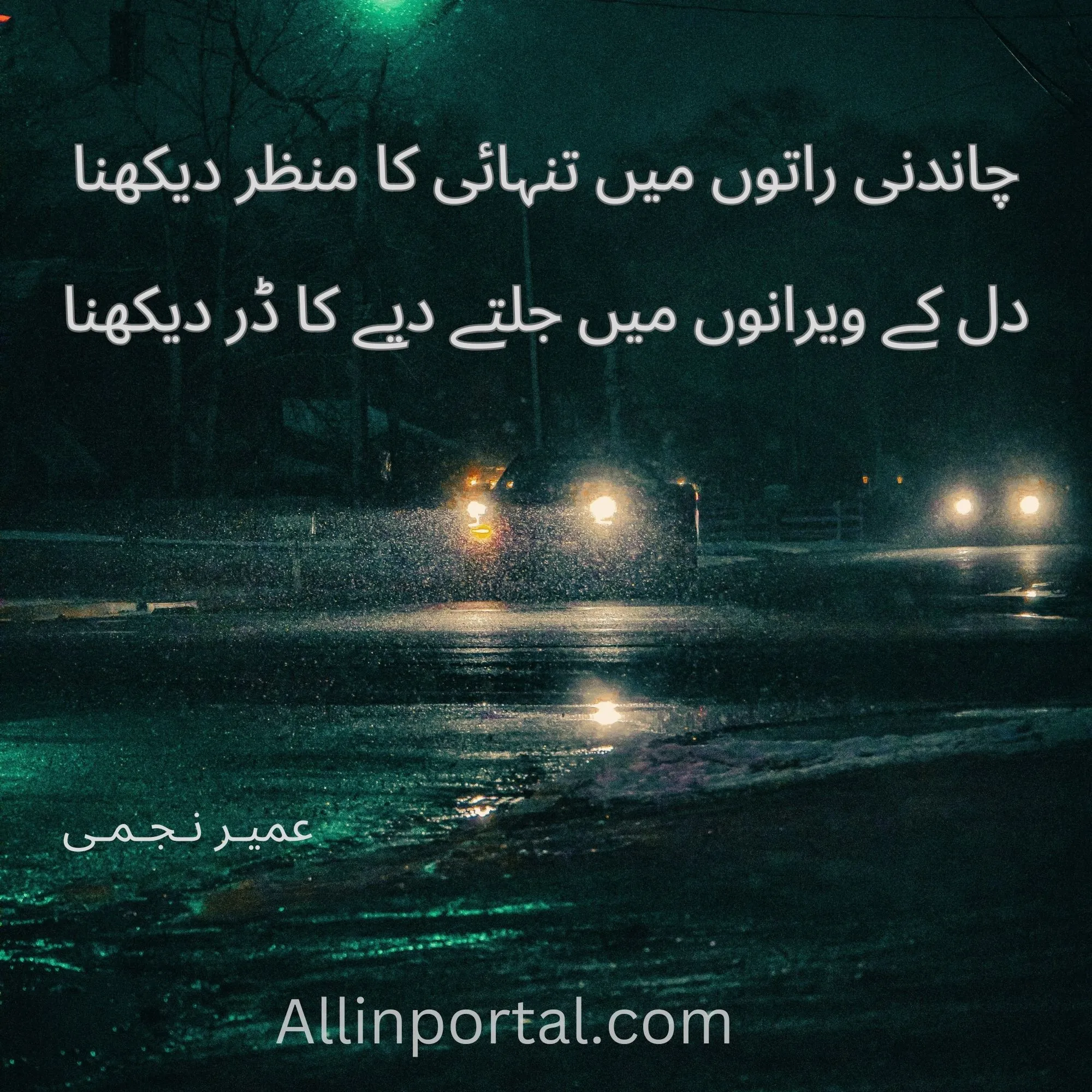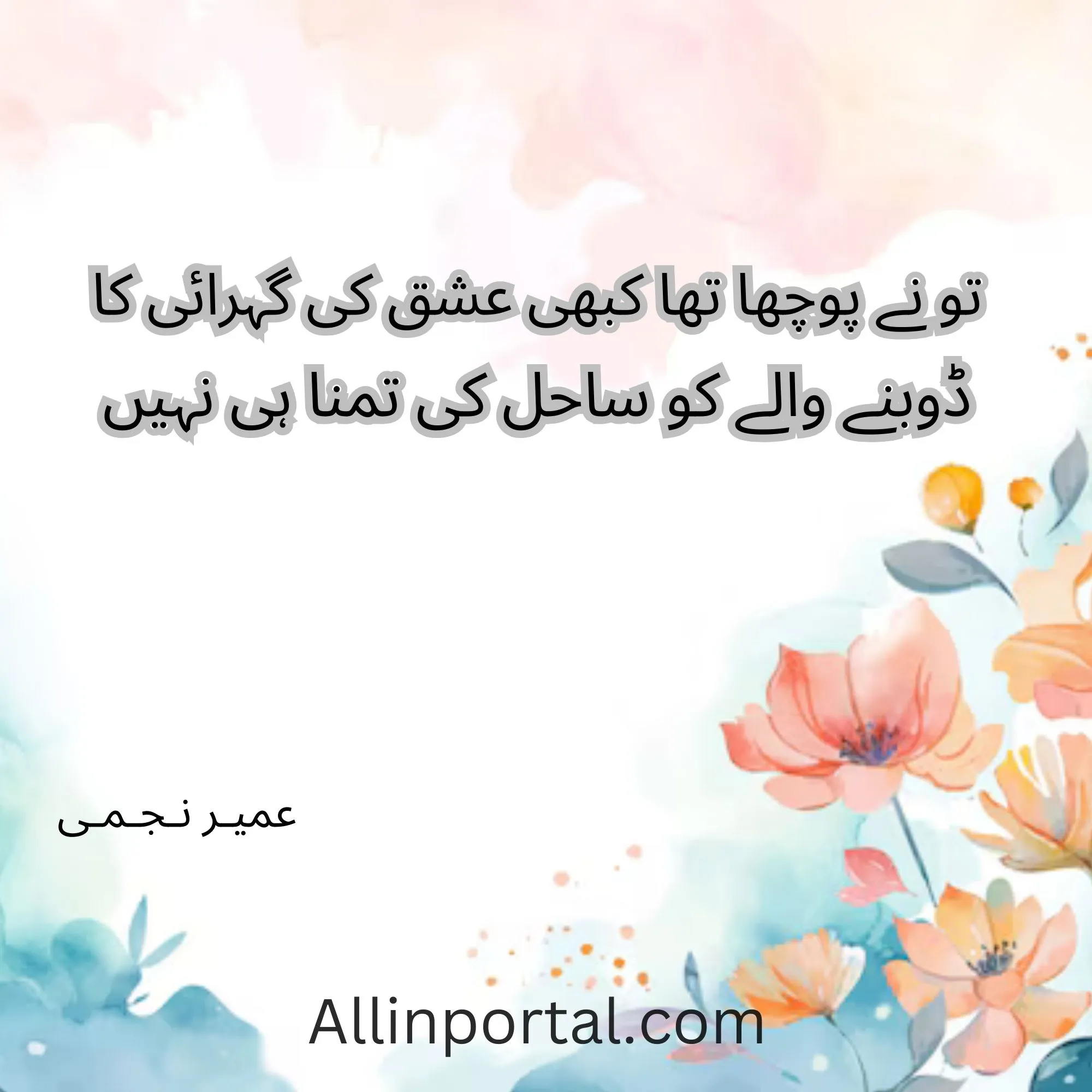

Best Mirza Ghalib Poetry
Mirza Ghalib, a name that resonates deeply in the world of Urdu poetry, is widely regarded as one of the greatest poets of the 19th century. His poetic legacy continues to influence generations of readers and writers. With his distinctive style, Ghalib’s work embodies a fusion of deep philosophical thought, romance, and an intricate understanding of human emotions. His ability to express complex feelings through simple yet profound verses makes him stand out in the literary world.

Mirza Ghalib was born as Mirza Asadullah Baig Khan on December 27, 1797, in Agra, India. Growing up during a period of political turmoil and the decline of the Mughal Empire, his early life was marked by both personal tragedy and external chaos. The loss of his parents at a young age and the sudden fall of the Mughal Empire significantly shaped his worldview and, in turn, his poetry. These formative experiences contributed to his melancholy and deeply reflective writing, which became a hallmark of his poetic expression. Ghalib’s poetry was not just about love and romance; it was about the exploration of human suffering, the complexities of life, and the search for meaning in an often chaotic world.

One of the most striking aspects of Ghalib’s poetry is his unique use of the Persian language, alongside his native Urdu. His poems are a blend of intricate metaphors, rich imagery, and subtle humor, which often reflect his deep understanding of human nature. Ghalib was a master of the ghazal, a form of poetry that explores themes of love, loss, and philosophical musings. His ghazals are often marked by a melancholic tone, capturing the sorrow of unrequited love, personal loss, and the inevitable passage of time. His style is both direct and enigmatic, allowing readers to interpret his verses in multiple ways, making his poetry timeless and relevant even today.

Mirza Ghalib’s poetry often delves deep into themes of existentialism, love, and spirituality. Unlike many poets of his time, Ghalib’s perspective on love was not merely romantic. His love poems were filled with yearning and longing, but they also hinted at deeper questions about life’s purpose and the relationship between man and the divine. His famous ghazal, “Hazaron Khwahishen Aisi,” expresses the frustration of unfulfilled desires, while also touching upon the futility of life and the inevitable sorrow it brings. Ghalib’s philosophy was one of acceptance and introspection, embracing the complexities of life and love, rather than seeking simple solutions. This deeper, often philosophical layer of his work has contributed to his status as a poet for all seasons.

Even though Mirza Ghalib lived in a turbulent time and faced personal hardships, his poetry continues to remain relevant across generations. His work has inspired countless poets, writers, and thinkers worldwide. His ghazals, some of which are still recited at mushairas (poetry gatherings), are admired not only for their linguistic beauty but also for their universal themes of love, loss, and self-discovery. Ghalib’s ability to express profound emotions in such an eloquent and accessible manner makes him a poet whose relevance transcends time and space. His poetry remains a bridge that connects the past to the present, offering solace and wisdom to all who engage with his words















Comments (3)
Your code of destinysays:
April 16, 2025 at 11:24 pmI’m really impressed along with your writing abilities and also with the structure to your weblog. Is that this a paid topic or did you customize it yourself? Anyway stay up the excellent quality writing, it is rare to look a nice weblog like this one nowadays!
Tifanysays:
April 18, 2025 at 3:11 amI’m extremely impressed along with your writing abilities as smartly as with
the layout for your blog. Is this a paid topic or did you customize it yourself?
Either way keep up the excellent high quality writing, it is rare to peer
a great weblog like this one today. LinkedIN Scraping!
Itastsays:
June 5, 2025 at 7:07 pmHappy to join conversations, share experiences, and pick up new insights throughout the journey.
I like hearing diverse viewpoints and adding to the conversation when possible. Always open to new ideas and meeting like-minded people.
Here is my site:AutoMisto24
https://automisto24.com.ua/